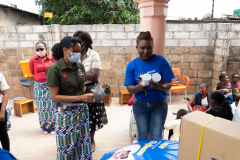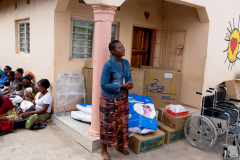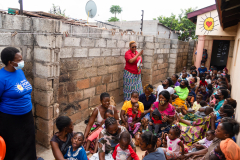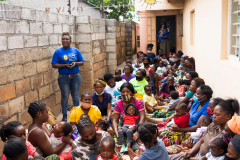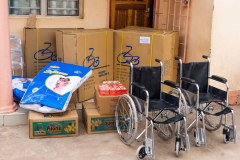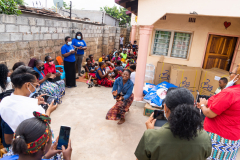Request for Expressions of Interest (EOI) for the Provision of Consultancy to Develop The Environmental, Social, and Governance Policies, Procedures, Strategy and Framework for ZCCM-IH Contract No.: ZCCM-IH/074/2022
1. BACKGROUND
Environmental, Social and Governance (ESG) has come increasingly to the forefront primarily through investors globally demanding increased attention on environmental, social and governance-related matters and data. Investors are starting to look beyond financial statements and now want to consider the ethics, competitive advantage and culture of a mining organization.
Locally, public policy and regulations are being strengthened by the Zambian Government geared towards combating climate change and drive sustainability.
In line with its strategic plan ZCCM-IH has committed to incorporating ESG factors in the Investment Appraisal process. In this regard, the Consultant shall also be required to transfer knowledge that shall culminate into hands -on capacity building for the 30-40 selected ZCCM-IH staff.
The Company thus intends to engage a consultant to develop and integrate an ESG strategy into Corporate Strategy and Business Planning Processes.
2. GOALS/OBJECTIVES.
To develop and integrate ESG principles in ZCCM-IH business and investment strategy and financial reporting. Further, to ensure the selected ZCCM-IH staff team is equipped to overcome obstacles and are ready to assist ZCCM-IH coordinate variety strands of capacity building performances in the future.
3. SCOPE OF WORK
- Review existing relevant Company policies and procedures.
- Undertake ESG materiality map of the company.
- Undertake an ESG risk assessment of the company.
- Develop the ESG Policy.
- Develop the ESG strategy/Plan.
- Develop ESG Investment Procedures.
- Develop company policies, procedures, and templates for identifying, managing, and monitoring environmental, social and governance (ESG) issues are up to date.
- Develop and implement the ESG reporting framework and standards combining the UN Principles for Responsible Investment (PRI), Task Force on Climate-Related Financial Disclosures (TCFD) and the Sustainability Accounting Standards Board (SASB).
- Produce the first Company ESG Report in line with the standards highlighted; and,
ZCCM-IH now invites eligible consultants to indicate their interest in providing the above services. Interested firms must provide information to demonstrate that they are qualified to perform the services (brochures, description of similar assignments, experience in similar conditions etc.).
Interested consultants may obtain further information at the address below during office hours between 08:00 – 13:00 hours and between 14:00 – 17:00 hours local time from Monday to Friday.
A consultant will be selected using the Quality and Cost Based Selection (QCBS) method. Interested consultants must submit one (01) original and three (03) hard copies of the Expression of Interest (EOI) to the address below no later than Wednesday, 6th April 2022.
Procurement Manager
ZCCM Investments Holdings Plc
ZCCM-IH Office Park
Stand No. 16806, Alick Nkhata Road
Mass Media Complex Area
P.O. Box 30048
Lusaka.
Email: katongo.kabwe@zccmnew.wpenginepowered.com;
Read the full document here: Request for EOIs Consultancy to Develop The Environmental Social and Governance Policies Procedures Strategy and Framework For ZCCM-IH.







